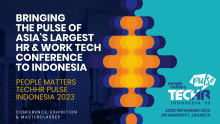Radical idea of AI and post-automated society

Work has dominated and pervaded our lived since time immemorial - from the stone-age to agricultural revolution and from industrialization to software age. Work gives us stress, freedom, isolation, act as leisure too and thus, forms a core part of our belief systems. However, the first existential threat to this ‘work’ is automation. Artificial Intelligence is here, whether we like it or not. From chatbots to drone delivery system, pick and place robots in the manufacturing sector to imagining self-driving cars in the making – everything is getting “uberized” around us. Self-checkout kiosks have automated the job of cashiers. With an increasing role of fourth generational technologies, the inevitable question faces us - What about jobs?
While some, like John Maynard Keynes, say that Automation will give rise to personal autonomy and leisure life, others say that it would be a “Frankenstein Monster” that would ravage our civilization. Automation would bring a cultural shift where gradually the value and availability of work would see a slowdown, however enhancing efficiency and productivity in the final delivery of any task. The initial impact of automation would disrupt our workforce and the work culture. Automation would primarily bring these things to our doorsteps: Diminishment of human labour increased unemployable youth and ability of information technology.
Amongst this pandemonium, though AI will automate some jobs, it will create some jobs too. For example, there are a large number of food delivery personnel and those who drive Uber/Ola – the apps which are possible because of predictive analytics and big data. However, the new jobs created would require highly skilled workers, leading to an increase in wage inequality/disparity. So, routine tasks would quickly get automated, on the other hand, non-routine tasks – which require cognitive or interactive abilities would be challenging to get programmed. Another example is of a Psychologist which is the least malleable to get automated.
Herein, the quality of education is going to be the critical factor – not to prevent technological disruption but to survive, and eventually thrive with it. Access to good quality education not only for rich demography but also for backward communities and rural areas poses the next big challenge. They will be the first one to bear the brunt of automation. The changing task content of jobs needs to be imbibed in our school curriculum. Education curriculum should be such which does not focus on rote-learning. Fundamental STEM skills and simultaneously human skills that robots cannot replace should be part of the educational curriculum. E.g. in educational institutions, a Ph.D. or a masters level student need to open a start-up and not submit a thesis. These initiatives will help the student to be creative and will bring systems thinking skills. Later on, these students can create employment for other people.
The technological disruption to the workforce has enormous social implications too. Youngstown, Ohio went through a disruption way back in 1977 when all of its steel mills industry got disrupted, and many people got jobless. At this time incidents of depression and mental illnesses, Domestic Violence, Suicides, crime rates increased and caused a psychological and cultural breakdown. Will we witness the same social impact with the rise in the proliferation of AI? This remains to be seen.
State-led initiatives on providing digital access and literacy, as well as financial inclusion and entrepreneurial skills, would create people who can fall into the category of post-workists. Unemployment has been the Achilles heel of every government in India. A young and growing population driven by aspirations wants to see dreams coming to fruition and increasingly looks up to the government to make it happen. But is this a problem for the government to solve single-handedly? Is skilling the population a sure-shot answer or is it a confluence of many things? It is crucial we get this right as and become a country of creators and originators, not as servicers.
India needs entrepreneurs who would build sustainable and real businesses at scale, so that each, in turn, will create jobs for one hundred to one thousand more. Simultaneously, we also need a mindset shift, at the family level and in educational systems to prepare and encourage those who pick this path. Encourage risk-taking, accepting that failing not once but many times is fine. The entrepreneurial community needs to get out of the perception that start-ups can only be about e-commerce or the internet of things.















